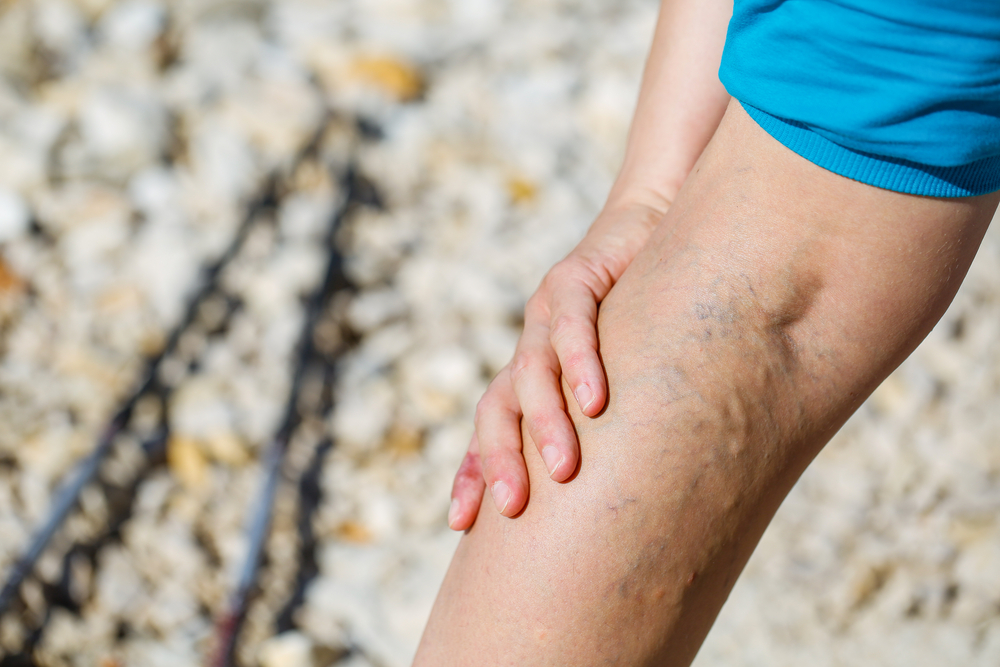
Varicose veins are prevalent, especially when age, weight, pregnancy, and genetics are taken into consideration. While these cord-like veins that bulge beneath the skin are generally harmless, they should never be left untreated.
Many patients suffering from varicose veins find that the condition can lead to itchiness in the areas around the budges, and many also experience discomfort, fatigue, pain, and swelling of the skin. These symptoms can sometimes be alleviated by wearing compression stockings; however, varicose veins won’t go away on their own. Learn the six hidden dangers of leaving varicose veins untreated and how having them removed can improve the quality of your life.
Blood Clots
The greatest danger that untreated varicose veins pose is an increased risk of developing blood clots. Chronic inflammation can damage the valves that control blood flow through your veins. This prevents them from pumping blood properly, resulting in blood accumulating in the veins. Should blood clots detach and enter the bloodstream, it can lead to life-threatening conditions.
Deep Vein Thrombosis
When a blood clot forms in one of your deep veins, it’s commonly known as deep vein thrombosis. If you have varicose veins, you’re already at an increased risk of deep vein blood clots forming. The danger of DVT can occur when a clot breaks off and circulates through your blood, where it can damage your organs. A blood clot moving through the body can cause a life-threatening pulmonary embolism. Common symptoms include chest pain, shortness of breath, and a cough that brings up a pink or red-colored fluid.
Chronic Venous Insufficiency
Varicose veins frequently lead to a condition known as chronic venous insufficiency. This commonly occurs when blood pools in the veins of your legs, making it difficult for blood to circulate from your legs to your heart. Inadequate circulation often causes edema, which is a condition that causes fluid to accumulate in the legs. Common symptoms include pain, cramping, and weakness in the legs.
Leg Swelling
A condition known as phlebitis causes your veins to become inflamed. This inflammation can occur in deep veins, or veins closer to the surface of the skin. When leg swelling occurs in veins close to the surface, it’s called superficial phlebitis, which rarely causes serious issues. That being said, when inflammation occurs in deeper veins, your circulation can be affected, which increases your risk of narrowing arteries and blood clots.
Bleeding
Since varicose veins are usually inflamed, they often press up against the skin, leaving them more susceptible to cuts. As a result, patients suffering from varicose veins can often bleed extensively from relatively minor injuries. Unfortunately, this heightened risk remains until the swelling subsides.
Hyperpigmentation
Left untreated, varicose veins can also seep blood into the surrounding tissues, which causes inflammation and dark discoloration, known as hyperpigmentation. This is not merely a cosmetic condition. As the blood continues to seep, inflammation can lead to lipodermatosclerosis that causes the surrounding tissue to become sensitive and fragile.
Venous Ulcers and Infections
Untreated varicose veins can result in venous ulcers, which are open sores caused by poor circulation. The most common symptoms of venous ulcers include inflammation, pain and discomfort, and a sense of heaviness in the affected limb. Significant discoloration of the surrounding tissue can also occur. Left untreated, venous ulcers can emit an unpleasant odor and generate pus.
Varicose Veins Are Easily Treatable
While varicose veins can lead to several serious complications, they are also easily treatable. It’s essential to seek medical treatment as soon as possible to minimize the associated risks. If you are suffering from any of the mentioned dangers of untreated varicose veins, contact Hinsdale Vein & Laser to discuss your treatment options.
[…] to suggest that drinking alcohol causes them to form in the first place. Patients with already existing varicose veins or a predisposition towards them developing should refrain from drinking in excess as much as […]